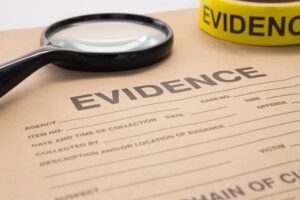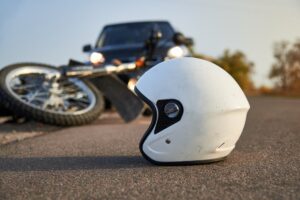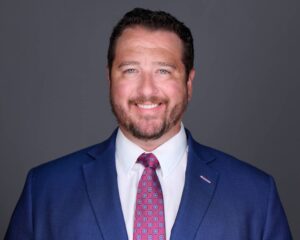A Florida motorcycle accident lawyer can be your strongest ally after a serious crash. Florida’s scenic highways and year‑round riding weather make it a paradise for motorcyclists, but they also make our state one of the most dangerous for riders. A single moment of a driver’s inattention can lead to a devastating crash, leaving you with serious injuries, a damaged bike, and substantial medical bills. While what you do at the scene is important, the steps you take in the days and weeks that follow will shape both your physical recovery and your financial future. A knowledgeable Florida motorcycle accident lawyer can help protect your rights and pursue accountability. Call the team at Englander Peebles today at (954) 226-9134 for a free, no‑obligation consultation.
The Critical Steps to Take From Home After a Motorcycle Accident
When you’re back home after emergency treatment, your recovery is just getting started. This is also the time to start building a strong foundation for any potential legal claim. The steps you take in these early days can make a real difference in your ability to obtain fair compensation for your injuries and losses. Insurance companies start working on their case right away, and you should do the same.Prioritize Your Medical Treatment and Follow‑Up Care
Your health comes first, and following through with medical care is also key to supporting your injury claim. Every appointment and treatment creates a record that shows the extent of your injuries and your effort to recover. Be sure to attend all follow‑up visits with your primary doctor and with specialists such as orthopedists, neurologists, or physical therapists. These records document how your injuries affect you and that you’re taking every step to recover. Fill all prescriptions and take any medication your doctor has recommended, whether for pain, infection prevention, or other conditions related to your injuries. If new symptoms appear or your pain becomes worse, contact your doctor immediately. Keeping a clear and consistent medical record helps show an insurance company that your injuries are serious. Skipping treatments or missing appointments can be used by an adjuster to argue that you were not badly hurt.Understanding Florida’s Motorcycle Insurance Rules
Many riders are surprised to find that Florida’s motorcycle insurance rules are very different from those for cars. This difference affects how your medical bills are handled after a crash. In Florida, drivers of passenger vehicles have Personal Injury Protection (PIP) coverage, which provides up to $10,000 in medical and lost wage benefits regardless of fault. However, motorcycles are not covered by PIP, which means there is no automatic insurance to pay your initial medical expenses. Instead, you may need to use your own health insurance, which could involve high deductibles or co‑pays. The at‑fault driver’s Bodily Injury (BI) liability coverage then becomes the main source for compensation. Proving that driver’s negligence is an important part of recovering damages.Preserve All Evidence of the Accident and Your Injuries
 As soon as you’re able, start gathering and organizing everything related to the crash:
As soon as you’re able, start gathering and organizing everything related to the crash:
- Your Motorcycle and Gear: Do not repair or dispose of your motorcycle until your attorney has had it inspected. Damage to the bike and your riding gear, such as a helmet or jacket, can reveal how the crash occurred and the force of impact.
- The Police Report: Obtain a copy of the official crash report, which includes the other driver’s information, insurance details, and the investigating officer’s findings.
- Photos and Videos: Keep any images taken at the scene. Continue to document your injuries as they heal. Photos of bruises, cuts, and surgical scars help show the lasting impact.
- A Personal Journal: Record details about your pain levels, how your injuries affect your sleep, and any tasks you struggle to complete. This personal record can illustrate the day‑to‑day effects of the accident and the impact on your life.
Be Careful When Dealing With Insurance Companies
Insurance adjusters may call soon after the accident, but you need to be very careful in those conversations. Their focus is on protecting their company, not on helping you. You are not required to provide a recorded statement to the other driver’s insurance company. Adjusters often ask questions in a way that encourages you to minimize your injuries or admit something that could hurt your claim. Politely decline to give a statement, and never sign medical authorizations or settlement agreements without first consulting a Florida motorcycle accident lawyer. It is also wise to avoid posting about your crash or your recovery on social media. Insurance companies often review social media profiles looking for anything they can use to dispute your claim.Common Causes of Motorcycle Accidents in South Florida
Every motorcycle crash is different, but many happen because other drivers fail to notice motorcycles or respect their rights on the road. An experienced Florida motorcycle accident lawyer knows how to investigate these situations and gather the evidence needed to show fault. A thorough investigation is the foundation of a strong claim.The Danger of Left‑Hand Turns at Intersections
One of the most frequent and hazardous scenarios for riders involves a driver making a left turn at an intersection. A driver may misjudge a motorcycle’s speed and distance or fail to see the bike altogether, turning directly into the rider’s path. With no time to react and no safe way out, the motorcyclist is often struck head‑on. These collisions are common at busy intersections throughout Broward County.Unsafe Lane Changes and Blind Spot Accidents
 Because motorcycles are smaller than other vehicles, they can easily disappear into a car’s blind spot. When a driver changes lanes without carefully checking mirrors and blind spots, they can drift directly into a motorcyclist.
This happens often on heavily traveled roads such as I‑95, I‑595, and Federal Highway. Even a slow‑speed impact can cause serious injuries to a rider with little protection.
Because motorcycles are smaller than other vehicles, they can easily disappear into a car’s blind spot. When a driver changes lanes without carefully checking mirrors and blind spots, they can drift directly into a motorcyclist.
This happens often on heavily traveled roads such as I‑95, I‑595, and Federal Highway. Even a slow‑speed impact can cause serious injuries to a rider with little protection.
Rear‑End Collisions and Distracted Driving
Rear‑end collisions are less common for motorcycles than for cars, but they are far more dangerous. Drivers who follow too closely or are distracted by cell phones may not notice that a motorcycle has slowed or stopped. What might be a minor bump between cars can be devastating for a motorcyclist thrown from the bike. Distracted driving remains a major safety concern highlighted by organizations like the Federal Highway Administration (FHWA).Road Hazards and Potential Government Liability
Sometimes a crash is not caused by another driver but by unsafe road conditions. Deep potholes, unmarked construction areas, loose gravel, or oil on the roadway can cause even skilled riders to lose control. In some cases, a government agency or private contractor may be responsible for creating these hazards or failing to maintain safe roads.Building a Strong Claim for Your Injuries and Losses
To pursue fair compensation, your attorney must build a case that clearly demonstrates how the crash occurred and the ways it has impacted every part of your life. A strong claim tells the complete story of your injuries and the losses you have experienced.The Importance of a Thorough Motorcycle Accident Investigation
A skilled motorcycle accident lawyer in Florida will conduct an independent investigation that goes beyond the initial police report. This may include working with accident reconstruction experts who analyze skid marks, vehicle damage, and debris patterns to explain how the collision occurred. Your legal team may also seek maintenance records for a commercial vehicle involved in the crash or request cell phone records if distracted driving is suspected.Calculating the Full Value of Your Claim
The goal of a personal injury claim is to recover the financial support you need to move forward. This includes both measurable costs and losses that do not have a fixed dollar amount.Economic Damages
 These damages cover the direct financial losses from the crash. They include medical costs, both past and future, ranging from emergency treatment to surgeries, rehabilitation, and long‑term care.
They also account for lost income and any decrease in your future earning ability if your injuries keep you from returning to your prior work or force you into a lower‑paying position. In addition, they cover property damage, such as the expense of repairing or replacing your motorcycle and riding gear.
These damages cover the direct financial losses from the crash. They include medical costs, both past and future, ranging from emergency treatment to surgeries, rehabilitation, and long‑term care.
They also account for lost income and any decrease in your future earning ability if your injuries keep you from returning to your prior work or force you into a lower‑paying position. In addition, they cover property damage, such as the expense of repairing or replacing your motorcycle and riding gear.
Non‑Economic Damages
These damages compensate for personal and intangible losses, which many riders view as the most significant. They include compensation for physical pain, ongoing discomfort, emotional distress, mental anguish, scarring, and disfigurement. They also account for the loss of enjoyment in daily activities and the diminished sense of freedom and passion that riding a motorcycle once provided.Navigating Florida's Complex Legal System
Several Florida laws will directly impact your motorcycle accident claim. An attorney can guide you through these legal complexities and protect your rights.Comparative Negligence
Florida uses a modified comparative negligence system, as defined in Florida Statute § 768.81. This means if you are found to be partially at fault for the accident, your compensation may be reduced by your percentage of fault. For example, if you are found 10% at fault, your final award would be reduced by that amount. If you’re found more than 50% at fault, Florida law won’t let you recover any damages. Insurance companies often try to use this rule to shift blame onto the rider, making strong legal advocacy important to counter their tactics.Statute of Limitations
You have a limited time to file a lawsuit in Florida. Under Florida Statutes § 95.11(4)(a), you generally have only two years from the date of the accident to file. While that may seem like a long time, investigating a complex motorcycle crash, gathering evidence, and negotiating with an insurance company takes time. Missing this deadline means you lose your right to seek compensation in court forever.FAQs for a Florida Motorcycle Accident Lawyer
What happens if the driver who hit me says the accident was my fault?
This is a very common tactic used to avoid responsibility. In Florida, even if you are found to be partially at fault, you may still be able to recover compensation as long as you are not found to be more than 50% responsible. An attorney's job is to gather evidence, such as witness statements and accident reconstruction data, to counter these false accusations and present a clear picture of what really happened.How much does it cost to hire a motorcycle accident lawyer?
Most reputable motorcycle accident lawyers, including our firm, work on a contingency fee basis. This means you pay no upfront fees or out-of-pocket costs. The attorney's fee is a percentage of the compensation we recover for you through a settlement or a verdict. If we do not win your case, you owe us no fee for our time or services.What if the driver who hit my motorcycle does not have insurance or fled the scene?
If the at-fault driver is uninsured or cannot be identified in a hit-and-run, you may still have options for recovery. Your own Uninsured/Underinsured Motorist (UM/UIM) coverage on your motorcycle or auto insurance policy is designed for this exact situation. It allows you to file a claim with your own insurance company to cover your medical bills, lost wages, and pain and suffering, up to the limits of your policy.Do I still have a case if I was not wearing a helmet?
Yes. Florida law does not require riders over the age of 21 to wear a helmet if they carry a certain amount of medical insurance coverage. While an insurer may try to argue that not wearing a helmet contributed to the severity of a head injury, it does not prevent you from filing a claim against the driver whose negligence caused the crash itself. An attorney can work to keep the focus on the cause of the accident, not the helmet issue.How long will it take to resolve my motorcycle accident claim?
The timeline for a motorcycle accident case can vary greatly depending on its complexity and the severity of your injuries. A straightforward claim with clear liability might be resolved in a matter of months. However, a more complex case involving permanent injuries that requires extensive investigation and potentially a trial might take a year or longer to fully resolve. An attorney can give you a more personalized expectation based on the specific details of your case.Start Your Motorcycle Accident Recovery With Trusted Legal Help
